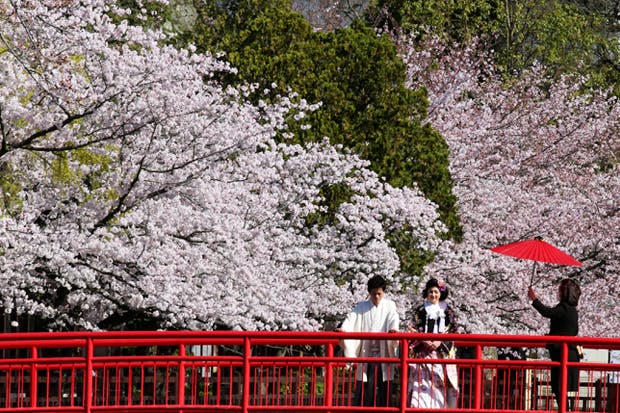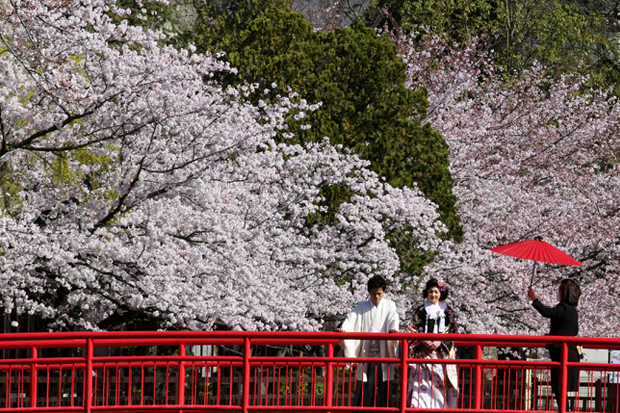THIS is a confession of sorts. Since the rise of Trump, I’ve been sneering along with the best of them about transnational global elites, and yet the truth is I was once one of them.
Born in New York, at the height of the ‘60s cultural revolution, to two journalists – a farmer’s daughter from the West Australian wheat belt and the son of a carpenter in small town New Zealand – I grew up in Tokyo via London, attended high school and university in Sydney, graduate school in Chicago, and worked in Boston via New York and Washington, DC. My father used to delight in saying I could be president, because I was a native-born New Yorker. Even better, I was born in Trump country: Jamaica, Queens.
My first snapshot of sentience was as New York as it gets: a baby lying flat in a basket on top of a washing machine in the basement laundry of our building in Forest Hills. I remember staring at dark pipes shuddering in the ceiling, as the subway roared nearby. There is no fear in that memory, just sensory impressions. Flash forward to Flushing Meadows park on a sunny day, sitting on a blanket with my parents stretched out with books, and a duck pond tantalisingly close.
More flashes from early childhood in Tokyo: a steep stairway in shadowy slow motion just before I tumble down. My sister was born when we lived in our first rented house, although unlike me, she was not eligible for exotic citizenship, because we were gaijin, foreigners, outsiders.
It was a traditional Japanese house with sliding doors and tatami mats, as my parents, in a short-lived hippy phase, tried cultural immersion instead of expat hauteur. My mother insisted I go to a Japanese primary school, although the headmistress told her that my enrolment was completely impossible. To my mother, the polite English translation sounded more equivocal.
The experiment didn’t last a term. All I remember was the feeling of being alien and utterly alone. My thick black hair had been razored short in the Japanese style of the time, I could speak Japanese fluently, with the accent of gangster TV, and in my new uniform I thought I looked like the other girls. But to them I was just gaijin, to be shunned, and I would end each day with my nose pressed against the glass, willing my mother to come.
However, my brief time as a human cultural sacrifice paid huge dividends. White guilt assuaged, my parents moved us into a lavish Western house equipped with rafts of live-in servants, who would chauffeur me around and cater to my whims. My favourite person was Oshima San, who used to take me by train a couple of hours north for weekends to visit her tiny elderly parents in a black shack at the foot of a mountain with a candle-lit shrine to their pilot son who had been killed in the war.
Best of all, I moved to an American school, the International School of the Sacred Heart in Shibuya-ku, with the daughters of Swedish diplomats, American businessmen, journalists and expats from all over the world, and soon ran with a posse of cool girls like Anne-Marie Berger, who lived in the Pan American compound. This was an oasis, a little slice of Kansas in the heart of Tokyo. There were green lawns and swimming pools, pizza pie and ranch houses with American flags and vast open spaces for kids to play.
No matter what country we were from, we were in the habit of using Americanisms, such as, ‘It’s a free country’, usually said belligerently, and without any understanding that we weren’t really living in a free country. Our ‘country’ was a transnational, multi-lingual, American-flavoured hybrid, defined as much by the Bobbsey Twins, Enid Blyton and Hans Christian Anderson, as it was by Japanese folk tales, such as Shita-kiri Suzume, the fable of the tongue-cut sparrow. We had American accents and watched Japanese game shows, sang about Japanese cherry blossoms, chanted rude Japanese ditties, and soon were more like each other than like our parents.
We didn’t care if we were spat on by racists in Meiji Park, because we had each other. We were the first globalised generation, comfortable everywhere, but never really from anywhere.
One night, I overheard my parents talking about how it was time to go ‘home’, and put down roots. Up until then, life had been a series of glamorous parties, my elegant mother making her own clothes, and crown princes and Russian spies drifting through our house in a haze of cigarette smoke, clinking glasses of scotch-on-the-rocks and dancing into the wee hours.
We landed in a red brick house in the sand dunes of East Fremantle. My sister and I were wan aliens in a savage land which our mother insisted on calling home. Shooed out of the house with a picnic basket one day, we raced back to her, screaming in fright about a fierce dragon which had hissed at us with a blue tongue. ‘It’s just a goanna!’ she laughed.
So I lay in bed at nights practising my Australian accent and forgetting my Japanese, and soon my mother complained I sounded like an Ocker. Mission accomplished.
My family moved back to America when I was 17, and at university, so I spent summers in wintry Chappaqua, and before long I had left Australia and rejoined my tribe of transcontinental wanderers. I’d go to parties in New York, or Washington, and bond instinctively with people my age who’d grown up the way I had, who took pride in being rootless and cosmopolitan, unaffiliated with the nations of our parents’ birth. We were the ‘transit loungers’ – a phrase coined in 1997 by Pico Iyer, the British-born writer of Indian descent, to describe a new globalised generation:
We pass through countries as through revolving doors, resident aliens of the world, impermanent residents of nowhere. Nothing is strange to us, and nowhere is foreign. We are visitors even in our own homes… We become professional observers, able to see the merits and deficiencies of anywhere, to balance our parents’ viewpoints with their enemies’ position… Fervour comes to seem to us the most foreign place of all.
I married a Kiwi, which is as far as my transnationalism goes these days. Our children live in the city where they were born, their accent is native, and their friends they have known all their lives. I loved my glittering childhood and the emotional aloofness from place and culture that was its gift. But I want my children to know where they are from. Through them, I wear the cloak of Australia as my birthright, a global elitist no more.
Got something to add? Join the discussion and comment below.
Get 10 issues for just $10
Subscribe to The Spectator Australia today for the next 10 magazine issues, plus full online access, for just $10.














Comments
Don't miss out
Join the conversation with other Spectator Australia readers. Subscribe to leave a comment.
SUBSCRIBEAlready a subscriber? Log in